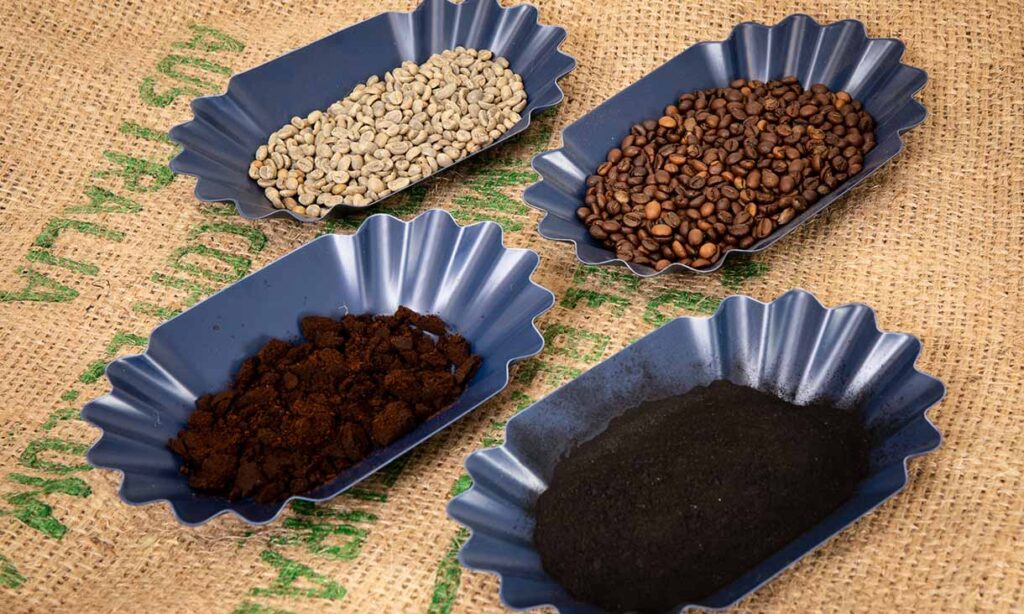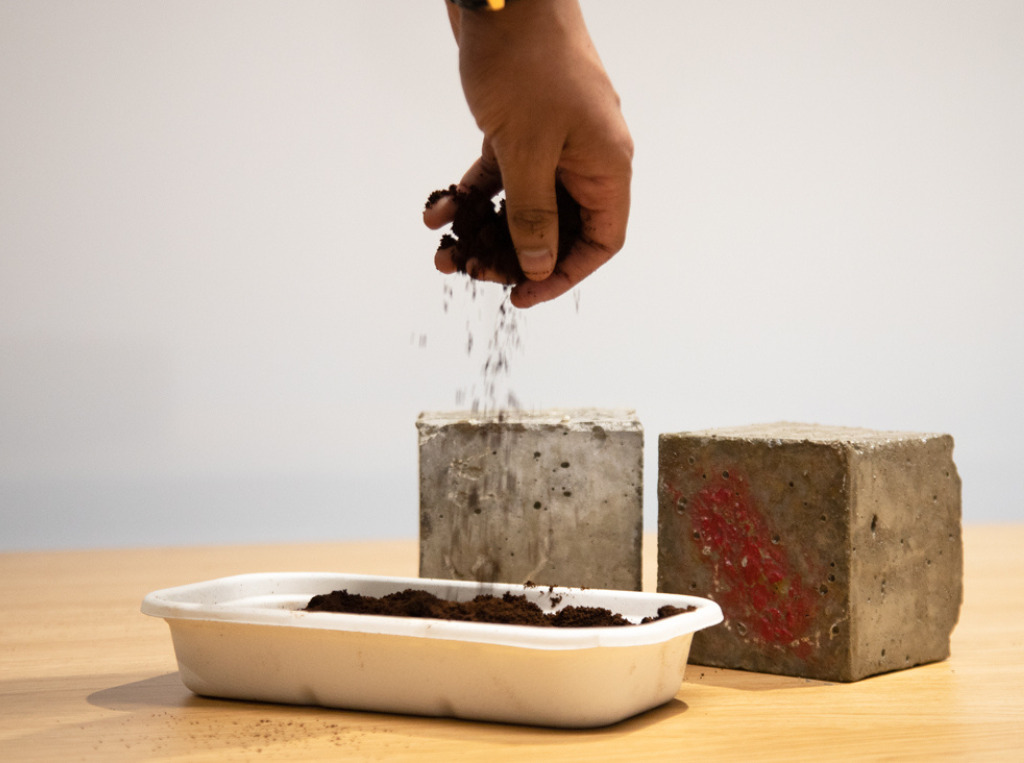From Beans to Buildings: Scientists Recycle Coffee Grounds To Make High-Performance Eco Concrete
3 Mins Read
A team of engineers at Australia’s RMIT University has developed a process to turn spent coffee grounds into biochar, which can be used to make concrete that’s nearly 30% stronger. The process can help reduce the amount of coffee waste that goes to landfill – which one figure estimates to be six million tonnes annually – and cut the methane emissions produced during its decomposition.
To transform used coffee into concrete, the scientists convert the spent grounds into biochar – a charcoal-like lightweight residue – via a roasting method not dissimilar to how beans are roasted to extract flavour. The process is called pyrolysis, and involves heating the grounds to 350°C in the absence of oxygen, which prevents carbon dioxide from being produced and adding to greenhouse gas emissions.
The engineers say the process is more energy-efficient than typical pyrolysis techniques as it requires lower temperatures than usual. Normally, pyrolysis can be a high-energy procedure as “you need to raise temperatures to somewhere between 700°C to 900°C”, according to study co-lead Dr Shannon Kilmartin-Lynch.
Using waste to build better
This process helps replace 15% of the sand typically used in concrete manufacturing with coffee biochar, which, in turn, enhances the strength of the concrete by 29.3%. “Structurally, the coffee biochar itself is finer than a sand… but it’s also a porous material, so it allows the cement to bind within the porous structure of the biochar itself,” explained Kilmartin-Lynch.
In addition, this could stop the concrete from drying out on the inside and developing micro-cracks, which can weaken its structure. “It definitely still is in its initial phase,” Kilmartin-Lynch noted. “There are further tests to be done on the durability and things like that.”
The idea came about over – you guessed it – a cup of coffee. “There was a lot of ground coffee and coffee pods being discarded,” he said. “[We wanted] to see if we could transform those spent coffee grounds into a more valuable sort of material.”
The researchers are now working with local councils on future infrastructure projects, like the construction of walkways and pavements. “Several councils that are battling with the disposal of organic waste have shown interest in our work,” said study co-lead Rajeev Roychand. “They have already engaged us for their upcoming infrastructure projects incorporating pyrolysed forms of different organic wastes.”
Finding solutions to coffee’s climate problem

Australia produces about 75,000 tonnes of coffee waste per year, and if all that is converted into biochar, it would produce around 22,500 tonnes of the substance – proving huge potential for a widely used building material. About 29 million cubic metres of pre-mixed concrete is produced for construction in Australia each year, and one report suggests that about 70% of the global population now lives in a structure partly made with concrete.
Coffee itself is an industry that has a cause-and-effect relationship with climate change. In response, businesses are coming up with innovative solutions to reuse and upcycle coffee waste, as well as reduce the waste produced in the first place. Within Australia, for example, brands like I Am Grounded and Nestlé have launched energy bars and beverages, respectively, using upcycled cascara (the outer husk of the coffee cherry that’s usually discarded).
Elsewhere, companies are upcycling spent coffee for food applications too. Starbucks Japan launched a programme to use discarded coffee grounds as agricultural compost, using food grown via this method in its store menus. Denmark’s Kaffe Bueno is using them in Kaffibre, a caffeine-free, low-fat, protein-rich source of insoluble dietary fibre for use in baked goods, pasta and snack bars.
One study looked at coffee’s potential in cosmetics, while another found that discarded coffee pulp could help speed up tropical forest recovery. Moreover, to address the ethical issues surrounding coffee supply chains and the threat posed by the climate crisis on the crop, some companies are developing molecular, beanless coffee.



